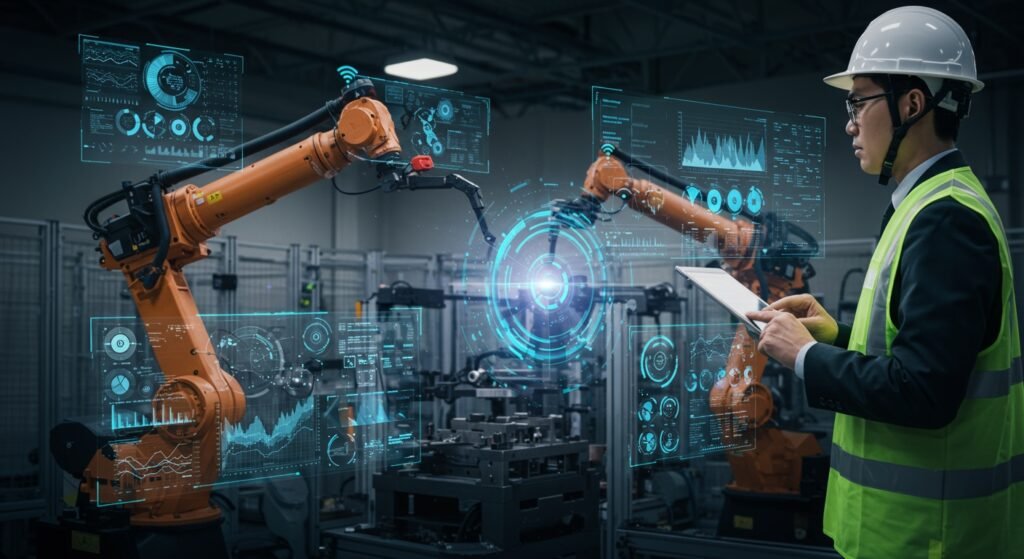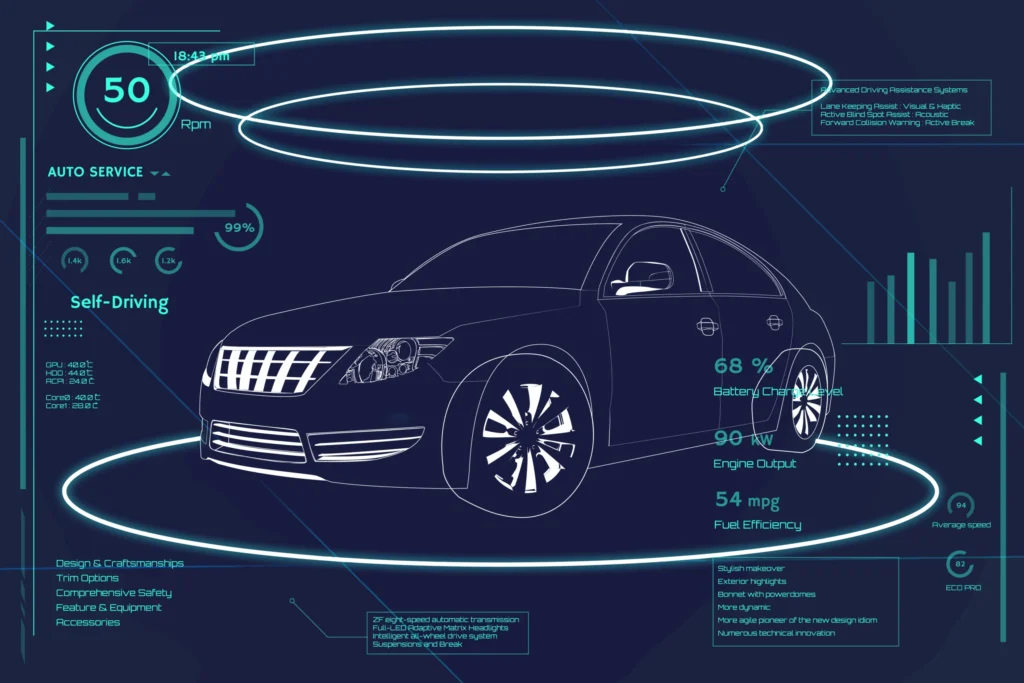Table of Contents
- The Synergy of Industrial Engineering in Smart Manufacturing
- Key Industrial Engineering Principles Applied
- Technological Pillars Driving Smart Manufacturing
- Optimizing Production Processes with IE
- Data-Driven Decision Making and Predictive Analytics
- Challenges and Future Trends
- Conclusion
Industrial Engineering (IE) has long been the backbone of operational efficiency, focusing on optimizing complex processes, systems, and organizations. With the advent of Smart Manufacturing, a paradigm shift driven by Industry 4.0 technologies, the role of Industrial Engineering in Smart Manufacturing has become more critical and transformative than ever before. This article explores how industrial engineers are leveraging cutting-edge technologies to create agile, efficient, and intelligent production environments.
The Synergy of Industrial Engineering in Smart Manufacturing
The convergence of physical and digital systems defines smart manufacturing, creating highly interconnected and responsive production ecosystems. Industrial engineers are uniquely positioned to navigate this complexity, applying their holistic, systems-thinking approach. Their expertise in process optimization, supply chain management, human factors, and quality control is indispensable for designing, implementing, and managing smart factories. The core objective remains the same: enhancing productivity, reducing waste, and improving overall system performance, but now with an unprecedented level of data and automation.
From Traditional to Smart Operations
Traditionally, industrial engineers focused on time and motion studies, factory layout, and discrete process improvements. In the smart manufacturing era, their scope expands to include cyber-physical systems integration, big data analytics, artificial intelligence, and real-time optimization. This evolution ensures that the vast amounts of data generated by connected devices are not just collected but actively used to drive intelligent decisions and continuous improvement across the value chain. This transformation is pivotal for staying competitive in today’s global market.
Key Industrial Engineering Principles Applied
Several foundational IE principles are now amplified and made more effective through smart manufacturing technologies.
Lean Manufacturing and Six Sigma
Lean methodologies, which focus on eliminating waste, and Six Sigma, aimed at reducing variability and defects, are supercharged by real-time data and advanced analytics. IoT sensors can monitor every stage of production, identifying bottlenecks and quality deviations instantaneously. AI algorithms can predict equipment failures, allowing for proactive maintenance and minimizing downtime, a core tenet of Lean. This integration allows for a much more dynamic and responsive application of these principles, moving from periodic audits to continuous, data-driven optimization.
Systems Thinking and Optimization
Industrial engineers inherently adopt a systems perspective, viewing the factory as an interconnected whole. Smart manufacturing environments, with their intricate networks of devices and data flows, necessitate this holistic approach more than ever. Optimization algorithms powered by machine learning can analyze vast datasets to determine optimal production schedules, resource allocation, and logistics routes, far surpassing manual capabilities. This allows for truly optimized end-to-end processes.
Technological Pillars Driving Smart Manufacturing
The capabilities of industrial engineering are greatly extended by several key technologies:
- Internet of Things (IoT): Sensors embedded in machines, products, and even personnel provide real-time data on performance, location, and condition.
- Artificial Intelligence (AI) and Machine Learning (ML): Used for predictive maintenance, quality control, demand forecasting, and process optimization.
- Robotics and Automation: Collaborative robots (cobots) and autonomous guided vehicles (AGVs) enhance productivity, safety, and flexibility.
- Big Data Analytics: Processing and deriving insights from the enormous volumes of data generated by smart factories.
- Digital Twins: Virtual replicas of physical assets, processes, or systems used for simulation, analysis, and optimization before physical implementation.
- Cloud Computing: Provides the scalable infrastructure for data storage and processing required by smart manufacturing applications.
The Role of Data Integration
The true power lies not just in individual technologies but in their seamless integration. Industrial engineers facilitate this by designing robust data architectures and workflows, ensuring that information flows freely between disparate systems, from the shop floor to enterprise resource planning (ERP) systems. This integrated data environment is crucial for achieving true smart manufacturing capabilities.
Optimizing Production Processes with IE
The application of Industrial Engineering in Smart Manufacturing directly leads to tangible improvements in production processes.
Predictive Maintenance and Quality Control
Instead of scheduled maintenance or reacting to breakdowns, smart systems enable predictive maintenance. Sensors monitor machine health, and AI algorithms predict failures, allowing interventions before costly disruptions occur. Similarly, real-time quality checks prevent defective products from moving down the line, drastically reducing scrap and rework. This shifts quality control from inspection to prevention, a long-held IE goal.
Supply Chain Resilience and Agility
Smart manufacturing extends beyond the factory walls. Industrial engineers apply their principles to create more transparent and responsive supply chains. Real-time tracking, demand forecasting powered by AI, and automated logistics optimize inventory levels, reduce lead times, and enhance resilience against disruptions. For example, knowing the exact location and condition of every component greatly improves planning and reduces risks, enhancing overall supply chain efficiency. To learn more about broader industry trends, you might want to visit an external resource on the Fourth Industrial Revolution.
Comparison: Traditional IE vs. Smart Manufacturing IE
| Aspect | Traditional Industrial Engineering | Industrial Engineering in Smart Manufacturing |
|---|---|---|
| Data Collection | Manual, periodic, limited | Automated, real-time, comprehensive (IoT) |
| Optimization | Heuristic, human-driven, localized | Algorithmic, AI-driven, systemic |
| Maintenance | Reactive or preventive (time-based) | Predictive (condition-based) |
| Decision Making | Experience-based, delayed | Data-driven, real-time |
| System Scope | Individual processes/departments | Interconnected factory & supply chain |
Data-Driven Decision Making and Predictive Analytics
The abundance of data in smart factories empowers industrial engineers to make decisions based on precise, real-time insights rather than intuition or historical averages. This includes:
- Performance Monitoring: Dashboards provide instant visibility into OEE (Overall Equipment Effectiveness) and other key performance indicators.
- Root Cause Analysis: AI can quickly pinpoint the causes of production issues by analyzing correlated data points across the system.
- Predictive Modeling: Forecasting demand, predicting equipment failures, and optimizing energy consumption based on sophisticated models.
This shift from reactive to proactive management significantly boosts operational efficiency and reduces costs. For further insights into optimization strategies, consider exploring our article on Lean Manufacturing Strategies.
Challenges and Future Trends
While the benefits are clear, integrating Industrial Engineering in Smart Manufacturing is not without challenges. These include cybersecurity concerns, the need for a skilled workforce capable of managing advanced technologies, and the significant initial investment required for digital transformation.
Future Outlook
The future of industrial engineering in this domain is bright. We can expect increased adoption of edge computing for faster local processing, more sophisticated digital twin applications for entire supply networks, and greater emphasis on human-robot collaboration. Industrial engineers will continue to be at the forefront, bridging the gap between technological capabilities and practical operational excellence.
Conclusion
Industrial Engineering is not just adapting to Smart Manufacturing; it is actively shaping it. By applying their foundational principles alongside cutting-edge technologies, industrial engineers are indispensable in realizing the full potential of Industry 4.0. Their expertise ensures that smart factories are not just technologically advanced but also human-centric, efficient, and resilient, driving the next era of industrial productivity and innovation.


